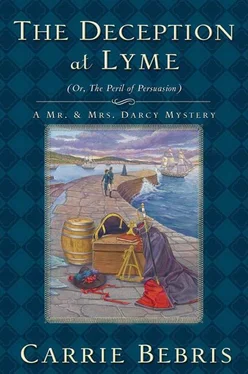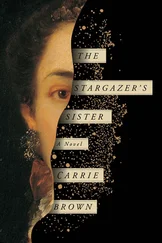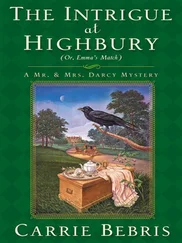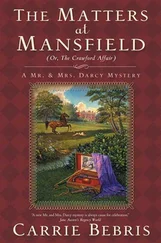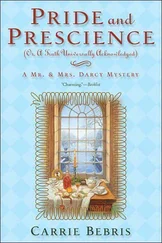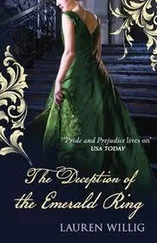“I cannot tolerate his cries any longer.” He turned to Darcy. “If you insist upon consulting Sir Walter before allowing me custody of my own son, then let us proceed.”
The gentlemen headed for the door, and opened it to find another man just approaching the house. He was a medium fellow—medium height, medium build, middle-aged, his grey hair neither long nor short, his countenance not striking yet not altogether plain. He was modestly but neatly dressed in a dark brown suit, its sole embellishment a black band round one arm.
Were he not immediately in their path, he might have blended into the busy street and gone entirely unnoticed by Darcy. Mr. Elliot, however, stiffened and pulled the door shut behind them as the stranger reached the house.
“Mr. Elliot.” He spoke in a clipped tone. “I did not expect to meet you here.”
“Mr. Shepherd.” Mr. Elliot acknowledged him with equal rigidity.
“I had to hear this news from Sir Walter? You had not the decency to inform me?”
“I myself only just learned of Penelope’s death. When last I saw her, she was quite alive.”
The man swallowed and looked away, toward the Cobb that had taken Mrs. Clay’s life. After a moment, with greater composure, he turned back to Mr. Elliot and nodded toward the house. “Is she yet inside?”
“The undertaker has collected her.”
“Where has he taken her?”
“You shall have to ask the family within. I did not make the arrangements.”
“No, I doubt you would trouble yourself, given your passing acquaintance with the expectations of propriety. But that is just as well; I will handle the matter from here. The child—where is he?”
“Do you enquire for yourself or Sir Walter?”
“Both.”
“You may tell Sir Walter that I have made provisions for my son’s care.”
The man released a low, mirthless chuckle. “ Your son? Not two days ago, you refused to make any such acknowledgment.”
Mr. Elliot shrugged. “I make it now.”
“It is irrelevant now. Yesterday, Sir Walter married Penelope and legally claimed paternity of the child as part of their marriage agreement.”
“Doubtless, you drew up the document yourself. Did Sir Walter even read it before he signed it? When was the last time he decided anything independent of your influence?”
“Where is the child?”
“I suppose you were also one of the witnesses to the marriage. Who was the other?”
“Miss Elliot.”
“Oh, that is just capital! The bride’s father and the groom’s daughter—two people who have even more interest in cutting me out of the entail than Sir Walter himself. Well done, Mr. Shepherd! Your years of managing and scheming have won extraordinary recompense. Your grandson may inherit Kellynch Hall before he is out of short pants.”
“I ask you again—where is he?”
“Find him yourself.” Without another word, Mr. Elliot walked away.
Darcy watched him go. He was certainly an unpredictable gentleman—solicitous one moment, cold the next, his interest in the child shifting with the sea breeze. Apparently, that interest was more financial than sentimental.
“Sir, might you be Mr. Darcy?” Mr. Shepherd asked. “You answer the description Sir Walter gave me of the gentleman who delivered the news of my daughter’s death.”
“I am he.” Darcy added his condolences, which Mr. Shepherd accepted with a nod.
“Sir Walter told me that you and your wife found Penelope. I thank you for the assistance you rendered her, and regret that Mr. Elliot has forced me to beg still more of you. Do you know where can I find the child? I enquire as both his grandfather and Sir Walter’s attorney.”
“He is within. Mrs. Darcy is preparing to take him to a wet nurse.”
Mr. Shepherd frowned. “Was the nurse engaged by Mr. Elliot?”
“No, by Mrs. Harville.”
That fact appeared to relieve Mr. Shepherd. “My commission this afternoon was dual: to collect the child and retain a nurse. I should like to accompany Mrs. Darcy and meet the woman. If she and her references prove satisfactory, the position is hers.”
“Mrs. Harville seems a woman of sense and discrimination. I trust you will find Mrs. Logan suitable.”
“I am also eager to speak with your wife. I understand she was with Penelope during her last hours.”
“She was.” Darcy paused. “I assure you, whatever comfort could be provided, Mrs. Darcy and Mrs. Harville offered.”
“I am grateful. As you surely surmised from my conversation with Mr. Elliot just now, Penelope’s … situation … these several months past was not what a father hopes. She bore mistreatment from individuals who should have demonstrated higher principles, and censure by those who did hold to high standards—or were better able to maintain the appearance of them. She did not have many friends at the end.”
* * *
Mrs. Logan met Mr. Shepherd’s requirements. Just as important, she met Elizabeth’s. Having seen the motherless infant through the turmoil of his first hours of life, Elizabeth could not have easily relinquished him to the care of just anybody. Fortunately, the young widow seemed a kind, well-mannered girl. Still grieving the loss of her husband, and now her child, she was struggling to maintain herself. The offer of respectable work was a godsend, and she was as grateful to enter Sir Walter’s employ and household as his vanity could desire.
Elizabeth—and Darcy, who had accompanied them—left the Elliot baby with his new nurse and Mr. Shepherd as the two settled the particulars of Mrs. Logan’s removal to Sir Walter’s lodgings. While Elizabeth and Darcy walked back to the Harvilles’ home to collect Lily-Anne and report the successful meeting to Mrs. Harville, Darcy related the quarrel he had witnessed between Mr. Elliot and Mr. Shepherd.
“The timing of Sir Walter’s marriage certainly proved fortuitous,” Elizabeth remarked when Darcy had done. “Otherwise, it might have required the wisdom of Solomon to determine which gentleman possessed a superior claim to the infant.”
“This all would have been much simpler if Lady Elliot had been capable of telling us to whom he belongs, or at least more about herself.”
“Even were she able, she might have been reluctant to disclose much. Both Sir Walter and Mr. Elliot seem far more interested in the child than in her.”
Darcy agreed. “Only Mr. Shepherd seems to be mourning her death, and his grief is tempered by consciousness of the impropriety surrounding his daughter’s marriage.”
“Minds more drawn to scandal than ours might wonder how she came to get married so close to her lying-in that the child was nearly a witness to the wedding, and to have two men claiming paternity.” Elizabeth recalled the image of Lady Elliot standing on the upper Cobb, the hard expression that had overcome her countenance. “When we saw her before the accident, she did not appear a happy woman, let alone a joyful new bride.”
“Did she speak at all once in Mrs. Harville’s home?”
“A few words. The only significant one was ‘Elliot’—though whether she referred to Sir Walter, Mr. Elliot, or herself is anybody’s guess. Later, once her laboring began, she recovered her senses briefly and said ‘pushed’ after having strained toward birthing.”
Lady Elliot had said that word twice; it was the last word she ever uttered. She had never regained consciousness again to see the result of those pushes: the fragile little creature who, having been delivered from the womb with his mother’s final breath, was now being delivered to his proud father in a hack carriage.
Elizabeth and Darcy reached the Harvilles’ home and entered to the noise of childish squeals. This time, however, they were sounds of delight. Lily-Anne and Ben were playing, the shoving incident utterly forgotten.
Читать дальше
